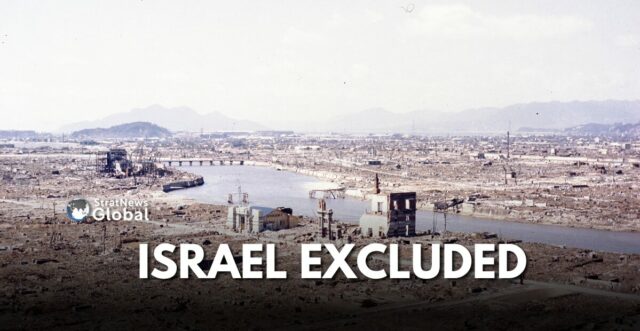Nagasaki’s mayor, Shiro Suzuki, confirmed the decision to exclude Israel’s ambassador from Friday’s event commemorating the city’s atomic bombing. Despite objections from senior diplomats from the United States and other Group of Seven (G7) nations, who stated that the exclusion would prevent their attendance, Suzuki stands by his choice.
Impact on Diplomacy
This decision could pose a diplomatic challenge for Japanese Prime Minister Fumio Kishida, who plans to attend the event. The annual ceremony in Nagasaki typically attracts less attention than the one in Hiroshima, which occurred three days earlier and marks the first use of nuclear weapons.
Suzuki clarified the reason behind the decision: “It’s not that we haven’t issued an invitation to the Israeli ambassador for political reasons, but rather, we want to conduct the ceremony smoothly in a calm and solemn atmosphere.” He did not provide further details on the judgment.
Countries Excluded
Israel joins Russia and Belarus on the list of uninvited countries. Interestingly, Israel’s ambassador, Gilad Cohen, attended the Hiroshima ceremony earlier this year. The exclusion comes amid Israel’s ongoing conflict with Hamas in Gaza, which has resulted in significant casualties and destruction.
Responses From Diplomats
U.S. Ambassador Rahm Emanuel criticized the exclusion, stating, “Russia’s invasion of Ukraine and Israel’s self-defense are not morally equivalent,” and expressed concern that the ceremony’s message would be overshadowed by the controversy. A collective letter from G7 ambassadors, including representatives from Britain, Canada, France, Germany, Italy, and the European Union, was sent to Suzuki, highlighting their concerns about Israel’s exclusion.
Japanese Government’s Stance
Japan’s chief government spokesperson, Yoshimasa Hayashi, declined to comment on the issue during a press briefing. Israel’s embassy in Tokyo also did not immediately respond to requests for comment.
Historical Context
The commemorations in Nagasaki and Hiroshima hold deep significance in Japan, marking the devastating atomic bombings that contributed to the end of World War Two. The bombings resulted in over 200,000 deaths, leaving a lasting impact on the country’s history and its approach to peace and diplomacy.
(With inputs from Reuters)
Research Associate at StratNewsGlobal, A keen observer of #China and Foreign Affairs. Writer, Weibo Trends, Analyst.
Twitter: @resham_sng





